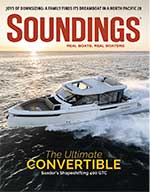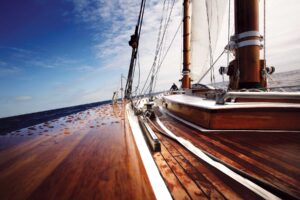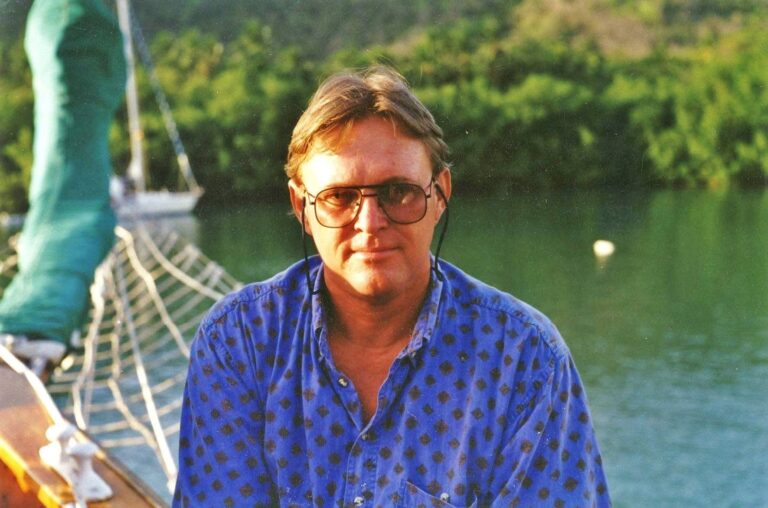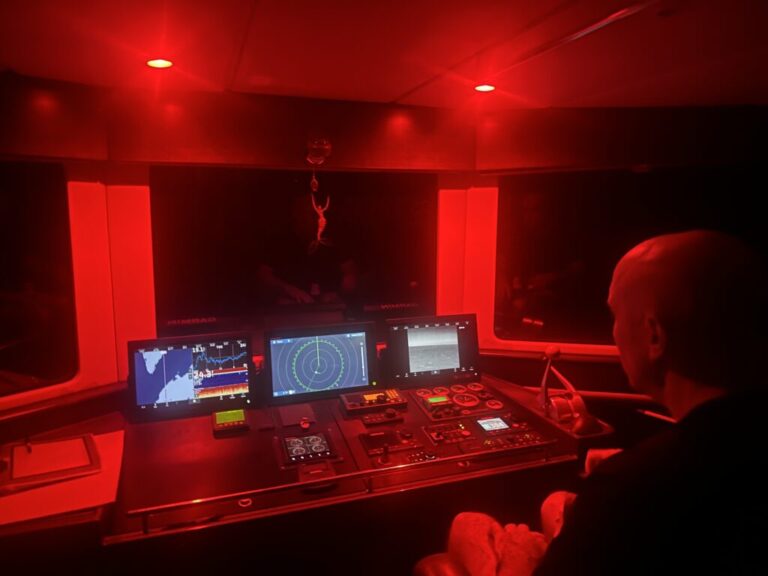Capt. Keith Colburn is the first to point out the dangers of commercial crab fishing on the Bering Sea. But he says it’s the dangers of his job that make him so vigilant about safety.

That’s why the Coast Guard has chosen Colburn, featured on the Discovery Channel cable TV show “Deadliest Catch,” as the national spokesman for its Boat Responsibly initiative, which encourages boaters to wear life jackets.
“Everybody looks at the ‘Deadliest Catch’ like it’s the most insane job on the planet, the most dangerous job on the planet,” says Colburn. “It’s kind of ironic to have someone in that profession talking about life jackets, boating responsibly and safety at sea, but it makes sense, because if we don’t think about those things when we leave town, we’re not coming back.”
Colburn’s stellar safety record made him a natural choice, according to Rear Adm. James A Watson, the Coast Guard’s director of operations for the Atlantic Area. “Keith is an experienced and well-respected seaman who puts a premium on safety for his boat and crew,” he says.
Colburn, who is 46, owns the 156-foot steel vessel Wizard, one of four ships featured in the television program. Colburn runs his crew through hours of safety drills. Ship systems are checked and double-checked. And every crewmember wears a life jacket on deck – no matter how calm the seas.
The crabbing season runs from October through April, and the Wizard returns to Alaska 10 times during the season to offload its catch. Colburn bought the vessel from John Jorgensen in 2005. Built for the Navy in 1945, she has a beam of 30 feet, a gross displacement of 500 tons and a draft of 13 feet.
“The hull is all lap-welded instead of butt-welded,” says Colburn. “They don’t make vessels like this anymore. It’s not cost-effective to build a boat they way they built the Wizard.”
Jorgensen, who bought the ship in 1978, taught Colburn about the importance of running the boat safely and taking no chances. For example, Jorgensen would often stop fishing in heavy weather while other skippers continued to fish, potentially endangering their vessels and crews. He also stressed the value of proper preparation and vessel maintenance.

“The most important safety lessons are what you do prior to even leaving the dock,” says Colburn. “We go through pretty much everything we possibly can prior to setting sail. We have different types of drills. They could be anything from man-overboard to how to use a marine VHF or single-sideband radio during an emergency situation. The most important safety lesson I’ve learned is: Be well-prepared.”
And that lesson is equally important for recreational boaters. “Always take yourself out of the equation. Make sure [your crew is] prepared for an emergency without you,” he says. “That’s one thing I think recreational boaters fall victim to too many times. The operator of the boat could be the one who gets injured.” (Watch the above video for more of Colburn’s tips.)
In his public appearances and service announcements for the Coast Guard, Colburn promotes PFD wear and cites Coast Guard statistics to reinforce the safety lesson. For example, there were 709 boating fatalities in 2008, according to the agency’s Recreational Boating Statistics. More than two-thirds of the victims drowned and, of those, more than 90 percent weren’t wearing a PFD.
“Even if it’s flat calm and it’s a beautiful day and you’re an Olympic swimmer, that doesn’t mean if you fall in the water you’re going to survive without some type of flotation,” Colburn says.

The crew of the Wizard, which includes two cameramen, wear either inflatable vest-style PFDs or jackets with foam flotation while on deck. Both are comfortable and provide excellent buoyancy, he says.
“The technology has improved dramatically to where today you can wear a PFD and not even know that it’s on,” says Colburn. “My guys … feel naked without their PFDs.”
Colburn is also a firm advocate of EPIRBs. “Even if you file a float plan and you come up missing, it’s a big body of water,” he says. “If you deviate from your plan and you don’t have communication, you’re on your own. You’re basically a little speck in the sea, waiting to be bailed out.”











